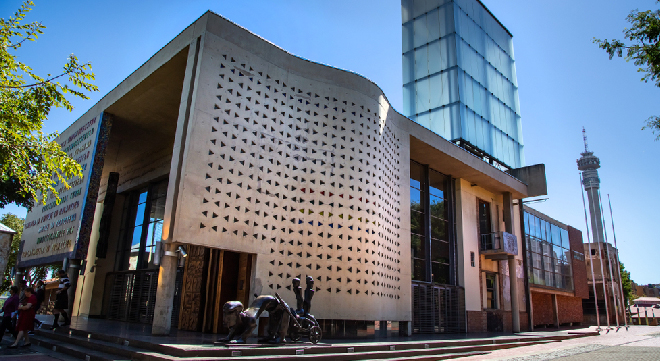The Constitutional Court has given Parliament 18 months to amend the Intestate Succession Act and the Maintenance of Surviving Spouses Act so that both laws provide for permanent life partners.
In a judgment handed down on the last day of 2021, the court found that section 1 of the Maintenance of Surviving Spouses Act and section 1(1) of the Intestate Succession Act were unconstitutional and invalid because both sections excluded permanent life partners.
The court ordered that:
- The definition of “survivor” in section 1 of the Maintenance of Surviving Spouses Act is to be read as if it included the following words after the words “dissolved by death”: “and includes the surviving partner of a permanent life partnership terminated by the death of one partner in which the partners undertook reciprocal duties of support and in circumstances where the surviving partner has not received an equitable share in the deceased partner’s estate”.
- Section 1 of the Act is to be read as though it included the following at the end of the existing definition:
- “Spouse” for the purposes of this Act shall include a person in a permanent life partnership in which the partners undertook reciprocal duties of support.
- “Marriage” for the purposes of this Act shall include a permanent life partnership in which the partners undertook reciprocal duties of support.
- Section 1(1) of the Intestate Succession Act is to be read as though the following words appear after the word “spouse”, wherever it appears in the section: “or partner in a permanent life partnership in which the partners have undertaken reciprocal duties of support”.
The case was brought by Jane Bwanya, who sought leave to appeal directly to the Constitutional Court against the Western Cape High Court’s dismissal of a challenge to the constitutionality of the definition of “survivor” under section 1 of the Maintenance of Surviving Spouses Act.
Bwanya also asked the court to confirm a declaration by the High Court that section 1(1) of the Intestate Succession Act is constitutionally invalid to the extent that it excludes surviving partners in a permanent heterosexual life partnership in which the partners had undertaken reciprocal duties of support from inheriting in terms of the Act.
Committed relationship
Bwanya and Anthony Ruch were involved in a committed relationship for two years. In November 2015, they planned to get married. However, Ruch died in April 2016, two months before they were scheduled to travel to Zimbabwe so that lobola negotiations could start and Ruch could meet Bwanya’s family.
In his will, Ruch had nominated his mother as the sole heir to his estate. However, his mother had predeceased him.
Bwanya lodged two claims against Ruch’s estate in terms of the Administration of Estates Act: for maintenance in terms of the Maintenance of Surviving Spouses Act and for inheritance in terms of the Intestate Succession Act. She based the claims on the fact that her permanent life partnership with Ruch was akin to a marriage and that they had undertaken reciprocal duties of support towards each other.
The executor of Ruch’s estate rejected both claims because, in terms of the Acts, Bwanya did not qualify for the claimed benefits.
Constitutional challenge
Bwanya challenged the constitutionality of section 2(1) of the Maintenance of Surviving Spouses Act and section 1(1) of the Intestate Succession Act in the High Court.
She argued that the two Acts are unconstitutional to the extent that they exclude surviving partners in permanent heterosexual life partnerships, where the partners had undertaken reciprocal duties of support, from claiming maintenance and inheritance from the estates of their deceased partners. The basis of the claim was that the exclusions under the two Acts violated her rights to equality and dignity.
Before the High Court disposed of the matter, Bwanya and the executor and Ruch’s relatives entered into a settlement agreement, which was made an order of court. In terms of this agreement, Bwanya was awarded R3 million.
The High Court dismissed the challenge to the constitutionality of the Maintenance of Surviving Spouses Act, mainly because it was bound by the Constitutional Court’s judgment in Volks NO vs Robinson and Others (2005). It found the Intestate Succession Act inconsistent with the Constitution and declared it invalid to the extent that excluded permanent life partnerships.
Majority and dissenting opinions
The majority judgment was written by Justice Mbuyiseli Madlanga, with five of the court’s 10 judges concurring.
Judge Madlanga said the Constitutional Court’s judgment in the Volks case, that section 2(1) of Maintenance of Surviving Spouses Act was not unconstitutional, was wrong. He said that permanent life partnerships are a legitimate family structure deserving of respect and given recent developments of the common law, are entitled to legal protection.
In a dissenting judgment, outgoing Chief Justice Mogoeng Mogoeng said the court had reached the correct decision in the Volks judgment. He also held that the fundamental differences between marriage and permanent life partnerships required the existence of different regimes for each with regard to maintenance and inheritance.
A second dissenting judgment penned by Justice Chris Jafta (with two judges concurring) agreed that the High Court’s declaration that section 1(1) of the Intestate Succession Act was invalid should be confirmed, and that leave to appeal should be granted although the matter was moot. However, it disagreed that the appeal should succeed.
The judgment also stated the High Court was right in concluding that the decision of the Constitutional Court in Volks stood in the way of the claim for invalidity in this matter.




Has this process been concluded? If not, how far along is it?
We have no information that this process has been concluded or what its current status is.